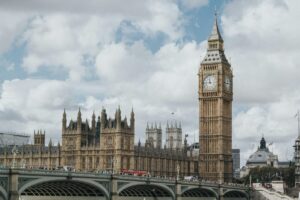More needs to be saved into private pension plans to achieve expected or minimum incomes and living standards in retirement, the Institute for Fiscal Studies concluded today in a major Pensions Review.
This is because longer life expectancy at older ages, lower earnings growth and lower returns to saving are more than offsetting the positive effects of a more generous flat-rate state pension in seeking to provide satisfactory income levels in retirement.
The IFS’s modelling suggests that a significant minority of current private sector employees saving in a defined contribution pension – around four in ten of this group – appear to be ‘undersaving for retirement’ when judged by the Pension Commission’s suggested ‘replacement rate’ of 67% (retirement income as a proportion of one’s final salary). The same modelling implies that 32% of private sector employees will fail to meet a ‘minimum’ retirement living standard – expenditure of £14,400 per year in today’s terms, assumed to rise with the growth in average earnings.
Gary Smith, Financial Planning Partner and retirement specialist at wealth management firm Evelyn Partners, comments:
‘The IFS report reveals widespread shortfalls in pension saving for people across the income range, as compared to their incomes during working life and also absolute measures to meet certain living standards. While the triple lock has helped the state pension to form a decent bedrock of guaranteed income for many retirees, the spending requirements that most people might expect after the end of their working lives are not being met by private savings, despite auto-enrolment.
‘But how adequate one’s pension saving is depends very much on how you estimate the income you need in retirement and on your individual circumstances.
‘A replacement rate of 67% might well not be necessary for some higher earners, while it may be quite inadequate for the lowest earners. Meanwhile, the PLSA’s minimum income level of £14,400 will feel on the low side for many people used to having more spending power. Moreover, these calculations leave out hugely important variables, like whether a retiree is still paying for housing costs, whether they are due to inherit sums that will compensate for a lack of saving, and whether they want to pass on much of their wealth to the next generation.
‘This is why every saver needs to think individually about what income they need or want in retirement and set about a savings plan to achieve that based on their life circumstances. While we would always urge savers to err on the generous side when estimating what size pension pot they will need, those who are due to have no housing costs when they finish work and a substantial inheritance will have drastically different needs to someone for whom the opposite applies. Although in some cases inheritances do fail to appear and it can sometimes be risky to rely on them.
‘Retirement lifestyle ambitions are often determined in part by financial realities, but it might be that some savers are simply not interested in new cars and expensive holidays, and that will have an impact on what income is adequate for them. Some might want to leave a substantial inheritance, while for others this might not be a factor: if someone is happy to run their pension pot right down in their later years, rather than withdraw only amounts that will leave a significant amount at death, this will reduce how much they need to save in the accumulation phase.’
The IFS added that results from an economic ‘life-cycle’ model of when during working life people should be saving indicate that there are good reasons for many people to save a greater proportion of their earnings for retirement in the later stages of their working life when their earnings are typically higher and their outgoings – such as mortgage payments, childcare costs and student loan repayments – are lower.
Smith adds: ‘For many workers in the early to middle stages of their careers, the salary versus outgoings equation may well be such that increasing monthly pension contribution is simply not feasible. Unfortunately this means that many younger savers will miss out on powerful early contributions that can seriously boost a pension pot over the following decades – although auto-enrolment is resolving this issue to an extent. While for some workers budgetary pressures will be intractable, we would encourage anyone who can find room in their outgoings to think about raising their pension contributions, especially while pension tax relief is still available in its current form.’















